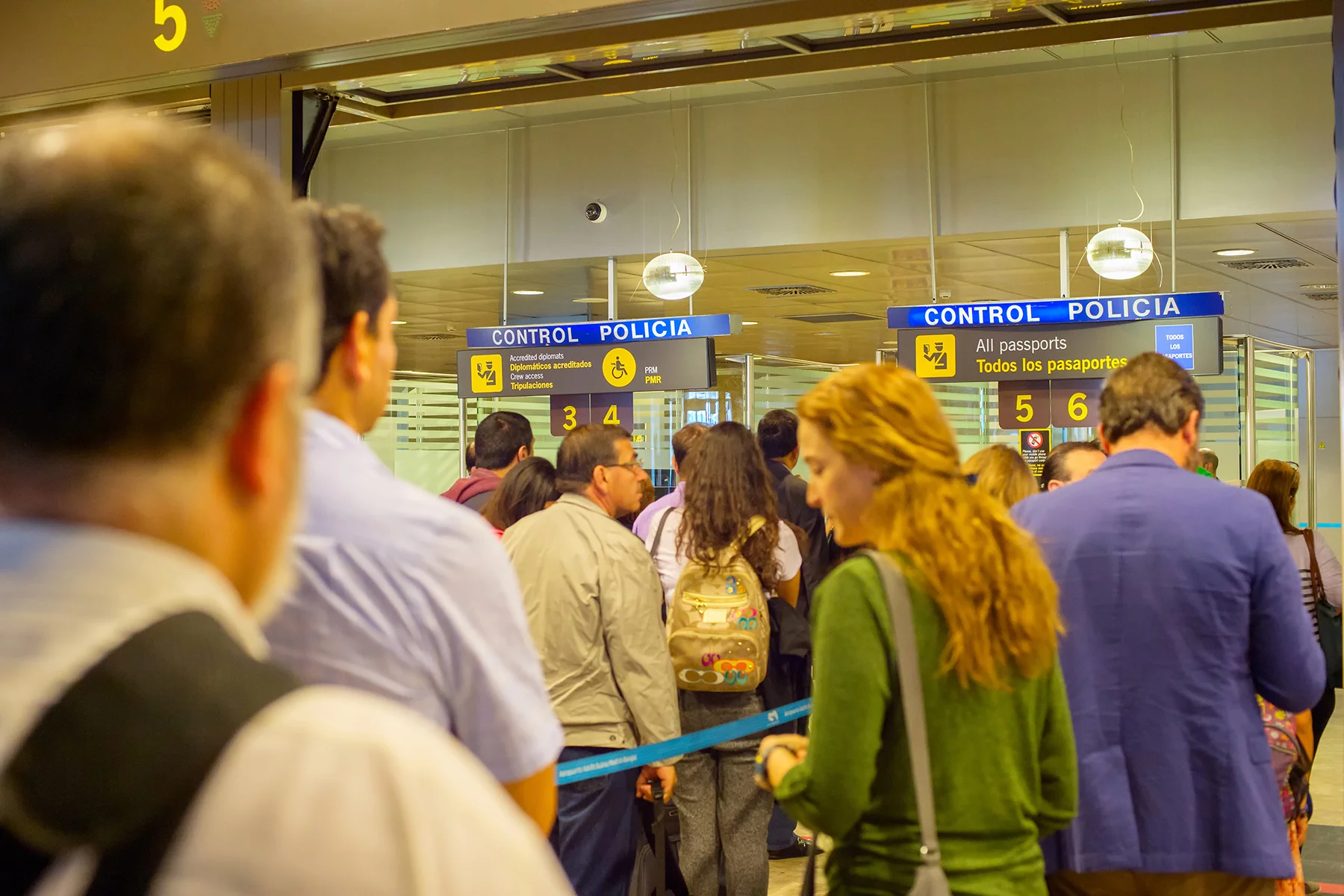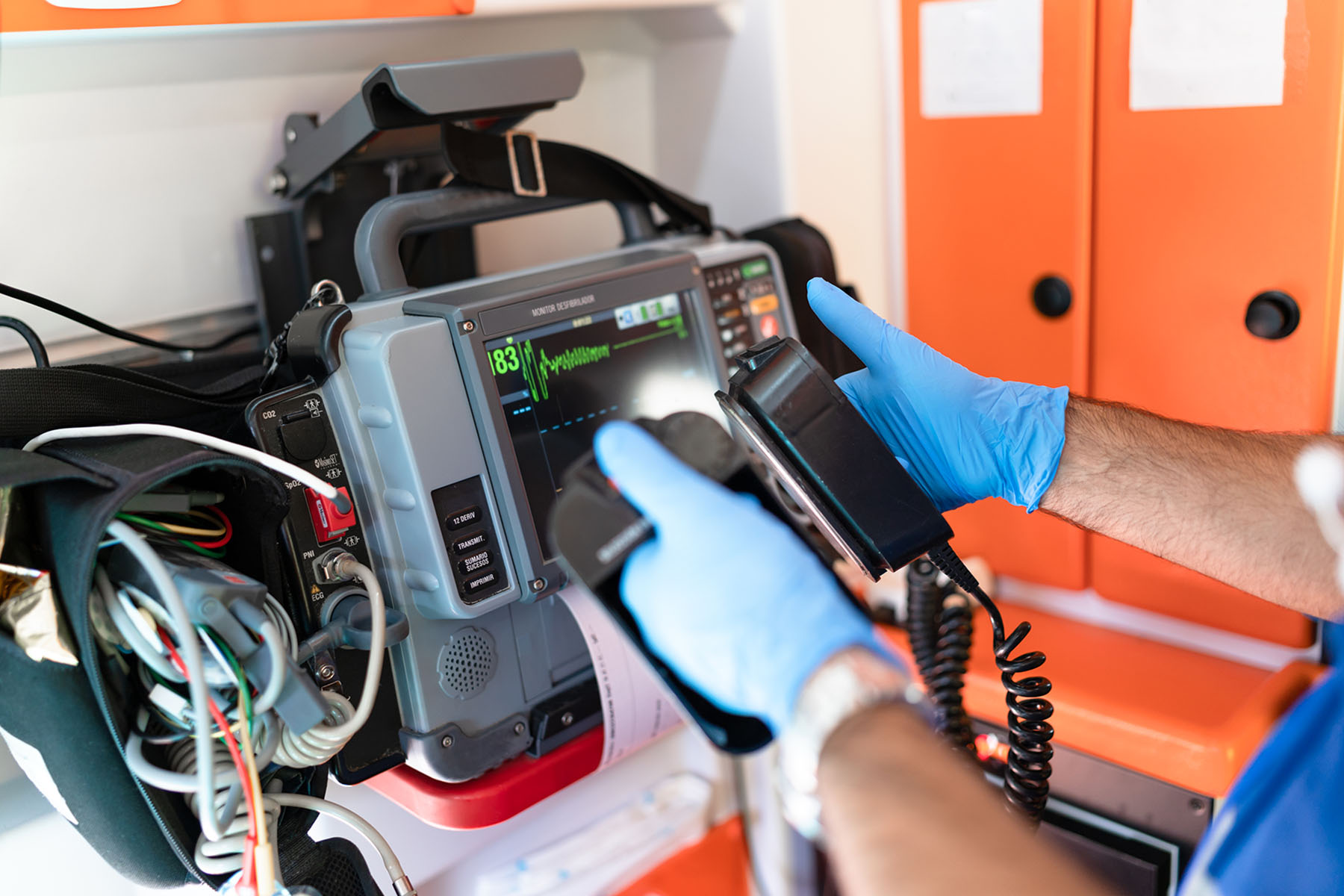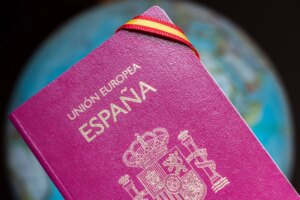Moving to Spain might be your dream come true, but not if you have to leave your loved ones behind. The good news is that they may be able to live with you while you work or study in the country.
Learn what you need to know about family visas in Spain, including the following:
- Family visas in Spain
- Who can move to Spain to join their family?
- Spain family reunification visa
- EU family reunification visa
- Short-term visits to family members in Spain
- Family visas to join refugees or asylum seekers in Spain
- When family members arrive in Spain
- In the event of divorce or death of a family member in Spain
- Family visa appeals in Spain
- Useful resources
The Relocator
Are your family members joining you under the Spanish sun? Then make sure you know your relocation options with The Relocator. On their easy-to-use platform, you'll be able to quickly compare quotes from some of the world's leading global relocation firms. If your family is joining you in Spain, start their new life off on the right foot with The Relocator.
Family visas in Spain
The Spanish Ministry of the Interior (Ministerio de Asuntos Exteriores) is the government authority that oversees visas and permits in Spain, including family reunification visas (reagrupación familiar).

Spain has a relatively open policy for reuniting families compared to other EU countries. In fact, Spain had the second-highest number of immigrants under 18 in 2021. Furthermore, in some circumstances, Spain enables families to also reunite with extended family members.
If you need assistance with your family visa, it’s worth getting in touch with a service that specializes in helping expats with these issues, such as Entre Trámites.
Who can move to Spain to join their family?
Whether your family needs a visa to join you in Spain will largely depend on your circumstances. To give you an idea, we take a look at who does and doesn’t need a Spanish family visa.
Who does not need a family visa to move to Spain?
If you’re from the European Union (EU), European Economic Area (EEA), or Switzerland you can join your relative in Spain without a visa. However, you must follow certain rules regarding registering as a foreigner and getting a Foreigner’s Identity Number (NIE).
Who needs a family visa to join their family in Spain?
Non-EU/EEA relatives of non-EU/EEA citizens living in Spain will require a family reunification visa to reunite in the country. The family member in Spain must generally live legally in the country for one year and receive authorization to stay for another year before their relatives can live in Spain with them.

However, your family members are immediately eligible to apply for a family reunification visa if you have one of the following:
- Long-term residence permit from another EU member state
- EU Blue Card
- Student or researcher visa
Spain family reunification visa
Who can apply?
Relatives that are eligible for family reunification are:
- Your spouse or civil partner (with whom you are still in a relationship).
- Unmarried dependent children, including adopted children, aged 18 years or under, of both you and your partner or spouse.
- Dependent child, grandchild or an adult for whom you are a legal guardian. For example, you have legal custody of a grandchild or are the caretaker of an adult who has a disability and cannot live independently.
- Parents, of both you and your spouse, over the age of 65 (younger in exceptional cases) who cannot live independently due to age and health concerns.
Under the EU Community regime, children who are ages 18 to 21 can also relocate based on a family reunion visa in Spain provided that they are dependent on their family and if they are enrolled in academic studies.
If you are a Spanish citizen
After living in Spain for 10 years you can apply to become a Spanish citizen. As a citizen of Spain or another EU country, you will have the right to sponsor extended family on a reunification visa. This includes:
- Nieces/nephews
- Siblings
- Children over 21
- Uncles/aunts
- Your partner if you haven’t registered the relationship
- Any other family member with a recognized disability that prevents them from living independently
Another requirement for bringing extended family members to Spain is that they must be economically dependent on the relative in Spain and they must be responsible for the relative in the country of origin. Money transfers must have taken place in the last 12–24 months, and the applicant must pay all of their expenses.

Visa length
The family reunification visa will be valid for as long as the residence visa of the person they are joining. Therefore, if the foreign resident applying for family reunification has a temporary residence permit, the family reunification visa is valid until the same date. If the foreign resident applying for family reunification has a long-term residence permit or EU long-term residence permit, the family reunification visa will expire on the date of the Foreigner’s Identification Card (TIE).
You can submit an application (jointly) to renew the visa 60 days before it expires. Everyone can apply to become a permanent resident of Spain after living legally in the country for five years.
Visa entitlements
Partners (married or registered union) and children over age 16 will be able to look for work, become self-employed, or study without obtaining an additional permit. They will generally also have access to social benefits such as Spain’s public healthcare system and social security. Education is compulsory for children under 16 years of age. As such, they can attend public primary and secondary schools.
Other relatives who join you with a family reunification visa will need to first get a valid permit before they can legally work or study in Spain.
How to apply
The person who has the Spanish residence permit must be the one to initiate the family reunification visa application. If you’re still in your home country, apply at the Spanish embassy there when you apply for your own residence permit.
If you’re in Spain, go to your local Foreigner’s Office. You may need to present the following documents:
- Original and copy of your passport and copies of the passports of your family members
- Copy of your residence permit(s)
- Proof of the family relationships, for example, marriage and birth certificates
- Sworn statement that you aren’t living with another partner, if your spouse or partner is joining you
- Evidence of your employment and/or proof you can financially support your family
- Proof of health insurance and any necessary medical certificates
- Evidence of adequate room for everyone to live with you, for example, a rental contract
Once the application has been granted, your relatives have just two months to go in person and apply for a visa at the Spanish embassy or consulate in their home country.
They may be required to have an interview and could also need to show the following:
- Valid passport
- Proof of the family relationship, such as a marriage or birth certificate, or adoption papers
- Certificate showing ‘no criminal record’ for the past five years
- Medical certificate proving that they do not have any disease which could endanger public health
The process of family reunification takes around 4-5 months. However, the exact period will depend on how long it takes to prepare and gather all the documentation and how long it takes to get an appointment with the immigration office. After the Spanish authorities grant the visa, the joining relative will have three months to travel to Spain with the visa.
Visa costs
The fee for a family reunification visa will depend on your nationality. Payment methods for a Spain visa application also differ from one country to the other.

In most countries, you will need to pay the fee at the consulate or visa application center, wherever you are submitting your application. The payment method will then depend on the local regulations.
EU family reunification visa
If you are an EU citizen who is living, working, studying, or looking for a job in an EU country different from the one you come from, EU laws make it easier for a non-EU partner to join you. However, the rules can vary depending on your personal situation.
Generally, the non-EU/EEA partner will need to get a Spanish visa to enter Spain. Then, they can apply for an EU family member residence card from the local Foreigner’s Office. If the relationship ends, the non-EU/EEA partner must reapply for a new residence permit within six months. You can use information from the European Union to further understand the requirements.
Short-term visits to family members in Spain
Non-EU/EEA citizens may need to apply for a short-stay visa (visado de corta duracion) to visit family members who are living in Spain. This visa is required for citizens of countries that have not reached a visa liberalization agreement with the Schengen states. Visitors can stay in the Schengen area for up to 90 days in a 180-day period with this visa, but cannot work. If you have a Schengen visa issued by another Schengen state, you can also visit Spain for up to 90 days.
You will need to fulfill several requirements to receive a short-stay visa, such as:
- proof of valid travel insurance
- round-trip itinerary
- proof of sufficient financial means (€100 per day, with a minimum of €900 per person regardless of the intended duration of the stay)
The visa typically costs €80 for adults and €40 for children who are 6-12 years old. However, the fees can vary depending on other factors such as the purpose of the visit and your nationality. The authorities typically respond to the visa application within 15 days. Contact the Spanish embassy or consulate in your own country to apply.
Who does not require a short-term visa?
On the other hand, many nationalities can enter Spain without a visa for periods of up to 90 days. These include the US, Canada, Australia, New Zealand, Argentina, Brazil, and Japan. However, you must still apply for a long-term residence visa to stay longer than three months. By the end of 2023, citizens of countries who can currently enter Spain without a visa will need to obtain an ETIAS Visa Waiver which will be similar to the ESTA used in the United States.

If you are a citizen of another EU country, your non-EU core family members (non-EU spouse, children, dependent parents, or dependent grandparents) have the right to visit you in Spain. You can use information from the EU to determine if they need a visa.
Family visas to join refugees or asylum seekers in Spain
The right to family unity is established in the Asylum Act. Under the law, refugees and asylum seekers can request either an extension of their international protection status to his or her family (Extensión familiar del derecho de asilo o de la protección subsidiaria) or family reunification (Reagrupación familiar). If the family members have a different nationality than the applicant, a family reunification visa is the only option.
The family extension applies to:
- Parents and full siblings who are dependent on the applicant in Spain
- Descendants who are minors
- Spouse or person who is linked by cohabitation
- Any other adult who is responsible for the beneficiary of international protection in accordance with current Spanish legislation, when the beneficiary is an unmarried minor
- Other dependent family members of the applicant in Spain
If you apply for asylum in Spain you should be very clear about your relatives and family members during your interview process. This record will help when you apply for your family to be reunited with you in Spain. Learn more about the reunion process for family members. Asylum seekers are generally eligible for free legal help in Spain.
When family members arrive in Spain
When family members arrive in Spain on a family reunification visa, they have one month to go to their local Foreigner’s Office and get their Foreigner’s Identification Card (TIE) with the Foreigner’s Identity Number (NIE) and register as a resident on the padrón at the local town hall. To obtain social security numbers for your relatives, you can contact the Tesoreria General de la Seguridad Social (TGSS). You can find your local Social Security Office (Oficina del Instituto Nacional de Seguridad Social) on the government’s website.

With these documents, your family can apply for the TSI health card that covers public healthcare in Spain. If they’re not eligible for the public health system, they can get private insurance.
They may also want to get a Spanish driver’s license or begin looking for work. If you have children under age 16, you should enroll them in school.
As mentioned, once your relatives have lived in Spain for five consecutive years, they can apply for a long-term residence permit. They can also apply for separate residence permits if they fulfill the conditions, for example, if they get an employment contract.
In the event of divorce or death of a family member in Spain
If you are living in Spain with a family reunification visa and the person who sponsored you dies or the relationship ends, it doesn’t always mean that you have to leave the country.
For example, if your visa depends upon your marriage or registered partnership and you want to stay in Spain, you should inform the Spanish immigration authorities if you get a divorce. If one of these situations applies, you may be able to maintain your residency in Spain:
- The marriage has lasted at least three years (as long as you both lived together in Spain for at least one of those years)
- You’ve won custody of your children
- You don’t have custody, but do have visitation rights
- You were a victim of domestic violence or human trafficking by your partner during your marriage
If the person who sponsored you has died and you have been living with them in Spain for at least one year, you may be eligible to remain a resident. In this case, you should also immediately notify the Spanish immigration authorities.
Family visa appeals in Spain
If your application for a family reunification visa is rejected, you can appeal the government’s decision. You can complete the application form at the agency or the Spanish Embassy in your country. This will allow you to explain why you disagree with the decision.
Once the Embassy examines the appeal, the visa application will be granted or rejected again. If you don’t receive a written reply within one month from the date of your appeal, you should consider the decision as final. However, you can file another appeal, but it has to be submitted to the tribunals in Spain, and you will need a lawyer.
Useful resources
- Official portal for family reunification from the Spanish immigration authorities
- EU immigration portal
- Family Reunification Visa – Balcells Immigration









